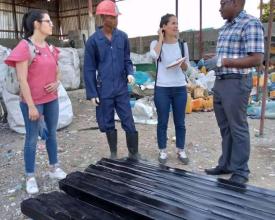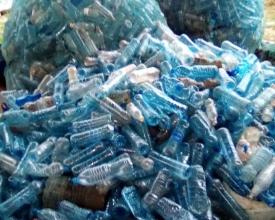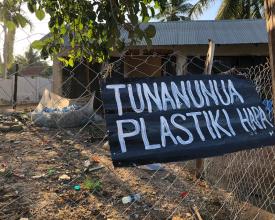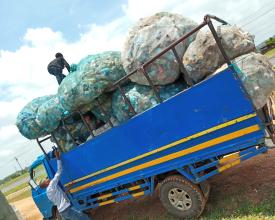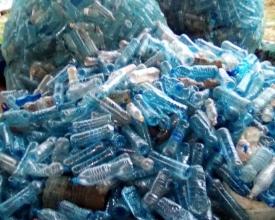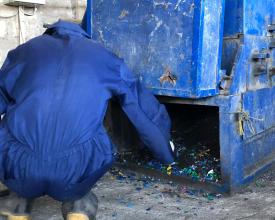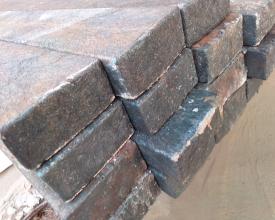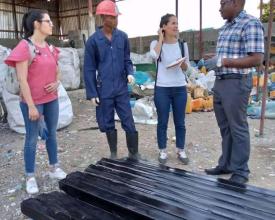
EcoAct Tanzanie Vie verte
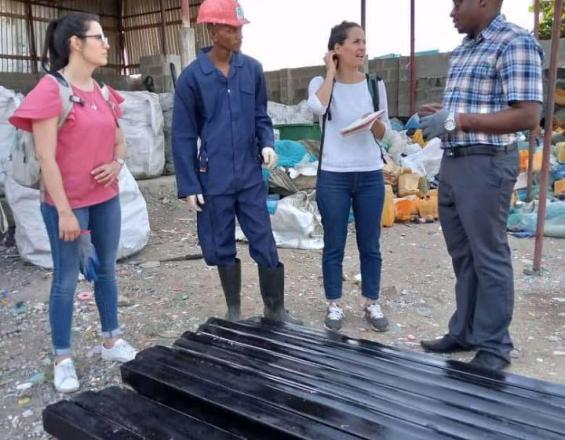
EcoAct Tanzanie est une entreprise sociale créée en 2018 pour relever les défis de la pollution plastique dans les écosystèmes côtiers. EcoAct utilise une technologie d'extrusion plastique sans produits chimiques et économe en énergie appelée "Waxy ıı Technology" pour recycler et transformer les plastiques post-consommation, les matériaux d'emballage et les déchets agricoles en bois de construction en plastique durable et respectueux de l'environnement. Les bois de construction en plastique sont une alternative abordable aux bois de construction en bois, qui réduisent le besoin de matériaux de construction fabriqués à partir de bois. Le bois de construction en plastique fabriqué à partir de déchets plastiques recyclés et de déchets agricoles est un produit idéal pour la construction de bâtiments et la fabrication de meubles. Ce produit contribue à la préservation des forêts côtières, comme les mangroves utilisées dans la construction des hôtels de plage, à la réduction des taux de déforestation et à l'atténuation du changement climatique. En outre, l'entreprise crée des emplois durables en fabriquant et en vendant des produits de construction écologiques de qualité qui dépassent les attentes des clients.
Contexte
Défis à relever
On trouve des déchets solides partout dans la ville et autour des maisons, dont 38 % sont en plastique. Bien que les administrateurs locaux et les organismes de protection de l'environnement soient conscients des risques sanitaires encourus, le manque de moyens financiers et technologiques a poussé les habitants de la ville à chercher de l'aide. La mise en décharge et l'incinération sont les méthodes les plus courantes à Dar-es-Salaam. D'autre part, la demande croissante de bois pour les activités de construction exerce une forte pression sur les forêts du pays (la Tanzanie perd 300 000 à 400 000 hectares de forêt chaque année). EcoAct s'est rendu compte que si elle pouvait fabriquer un produit de remplacement du bois qui soit solide, plus durable, moins cher et respectueux de l'environnement, elle pourrait profiter du marché rentable du bois tout en contribuant à la sauvegarde des forêts tanzaniennes.
Emplacement
Traiter
Résumé du processus
L'utilisation de solutions innovantes et respectueuses de l'environnement permet de préserver l'environnement de la déforestation, de la pollution et du changement climatique, tout en créant des emplois durables grâce à la fabrication et à la vente de produits de construction écologiques de qualité qui dépassent les attentes des clients. Tous ces objectifs sont atteints grâce à une équipe de travail solide, à la formulation d'un plan stratégique quinquennal et à l'établissement de partenariats avec les principales parties prenantes du secteur.
Blocs de construction
Technologie du travail du bois
Une technologie innovante, sans produits chimiques et consommant moins d'énergie pour recycler et transformer les déchets plastiques post-consommation en bois de construction en plastique abordable et durable, qui est une alternative au bois coûteux, afin de garantir un environnement plus propre et plus sain tout en réduisant les effets du changement climatique, les taux de déforestation, et en offrant une meilleure marge à nos clients.
Facteurs favorables
Au début, nos poteaux, après avoir été exposés à la lumière du soleil, dégageaient une mauvaise odeur, ce qui a suscité des plaintes de la part de nos clients. Après avoir mené des études pour comprendre les causes de cette mauvaise odeur, nous avons modifié nos pratiques et essayé d'autres matériaux. Lors de nos essais, nous nous sommes rendu compte que de nombreux déchets agricoles comme le maïs et les coques de noix de coco étaient utiles pour compenser l'odeur. Cependant, l'un d'entre eux produisait des produits lisses et propres, tandis que l'autre produisait des produits rugueux. Nous avons donc choisi la meilleure recette.
Leçon apprise
Lorsque nous avons commencé, nous utilisions toutes sortes de plastiques, y compris le PVC, sans savoir qu'ils étaient composés de produits chimiques supplémentaires. Au cours de nos activités, nous avons réalisé que certains plastiques émettaient des fumées nocives lorsqu'ils étaient brûlés, ce qui entraînait des difficultés respiratoires. Nous avons transformé notre technologie en fumier organique et cessé d'utiliser le PVC et d'autres plastiques produisant des fumées. Nous avons utilisé du fumier organique et des produits comme la sciure de bois dans notre formule, mais le problème subsistait. Nous avons découvert qu'en ajoutant des déchets agricoles au mélange de plastiques, nous produisons des produits propres et les fumées sont réduites.
Ressources
Créer et maintenir un fort esprit d'équipe
Afin de nettoyer la ville de ses déchets plastiques, nous avons créé une entreprise stable et rentable et nous nous attaquons au problème de la pollution des déchets au point de production en attachant une valeur sociale, environnementale et économique aux déchets plastiques. Nous collectons les déchets plastiques dans les rues et les décharges, nous permettons également à la communauté d'échanger ses déchets plastiques contre une couverture d'assurance médicale, ce qui nous permet de collecter suffisamment de déchets plastiques pour fabriquer des poutres en plastique, ce qui nous a beaucoup aidés à changer l'attitude de la communauté vis-à-vis de la gestion des déchets.
Facteurs favorables
EcoAct a tout simplifié en organisant des fêtes d'usine auxquelles tous les travailleurs participent, ce qui leur donne l'impression de faire partie de l'entreprise. Chaque lundi, lors de la réunion, il doit y avoir un représentant des travailleurs de l'usine qu'ils élisent pour présenter leurs opinions à la direction. Nous nous réunissons, nous discutons et nous nous consultons et parfois nous nous donnons des défis pour rester créatifs et concevoir des produits nouveaux et uniques. Cela leur permet de participer à la prise de décision.
Leçon apprise
Lorsque j'étais fraîchement diplômée, je pensais que si vous travailliez pour une entreprise, vous n'étiez qu'une personne à qui l'on demandait de faire ceci et cela. Lorsque j'ai rejoint EcoAct, les choses ont changé. Il n'y a personne pour me dire ce que je dois faire. Personnellement, je réfléchis à ce qu'il faut faire avant qu'on me le dise. Ce que j'ai appris, c'est qu'il faut beaucoup réfléchir et qu'on ne peut pas le faire seul. C'est nous, le personnel, qui devons réfléchir avant de recevoir des ordres.
Fournir des incitations sociales
Le programme d'assurance médicale des ordures est un programme de micro-assurance santé qui utilise les ordures comme ressource financière. Grâce à ce programme, la communauté et les habitants pauvres des bidonvilles qui ne sont pas assurés peuvent payer leur couverture médicale, leurs médicaments et d'autres services cliniques en utilisant les ordures comme moyen de paiement à un régime d'assurance, ce qui améliore leur accès aux traitements médicaux et la qualité des programmes de santé publique en ce qui concerne la promotion, la prévention, la guérison et la réhabilitation, en ciblant principalement les enfants des bidonvilles âgés de moins de 5 ans et les femmes enceintes. Il incite en outre la communauté à mettre en place un système organisé de gestion des déchets et d'entreprenariat au niveau des ménages, afin de bénéficier d'une assurance maladie continue.
Facteurs favorables
Ce qui nous a vraiment permis d'agir, c'est le manque constant d'approvisionnement en déchets plastiques de la part des ménages bénéficiant de notre régime d'assurance médicale. Ils ont eux-mêmes déclaré qu'il y avait un problème parce que d'autres personnes venaient acheter des plastiques et qu'ils étaient donc obligés de les vendre. Cela a rendu la collecte des déchets plastiques trop coûteuse, car chaque fois que nous allons chercher nos déchets auprès des familles que nous assurons, nous ne les recevons pas. L'augmentation des coûts est due à la location d'une voiture pour transporter les déchets.
Leçon apprise
Au départ, nous pensions que les gens avaient besoin d'une assurance médicale et que le problème était de trouver de l'argent pour la payer. Nous savions donc qu'une fois l'assurance fournie, nous avions résolu les problèmes de santé, mais les gens voulaient quand même une assurance et de l'argent, ce qui est difficile pour l'entreprise étant donné le coût élevé de l'assurance médicale. Nous avons proposé une assurance médicale au niveau familial en échange de déchets plastiques. Comme les gens avaient déjà une assurance et voulaient de l'argent, ils vendaient du plastique à d'autres personnes et nous n'avons pas pu nous approvisionner en plastique à temps. Afin de surmonter ces difficultés, nous payons toute quantité supplémentaire dépassant le tarif mensuel de manière à ce que chacun gagne un peu d'argent. La demande est trop forte, si des personnes peuvent s'aventurer dans ce domaine, nous leur en serions reconnaissants.
Impacts
EcoAct a collecté environ 20 tonnes de plastique et fabriqué 700 poutres en plastique qui ont toutes été vendues à des hôtels de Zanzibar et d'Arusha, générant ainsi des revenus. De nombreux chauffeurs de camion gagnent de l'argent en louant leur voiture à EcoAct pour collecter les déchets plastiques dans des centres désignés. En outre, EcoAct dispose d'un plan stratégique sur trois ans qui garantit le retrait de plus de 2,5 millions de kilogrammes de déchets plastiques post-consommation de l'environnement et leur utilisation pour la fabrication de bois de construction en plastique, ce qui permet d'économiser environ 250 acres de forêt qui auraient été coupés. Dans le même temps, il permet d'éviter l'émission de 2 500 tonnes de dioxyde de carbone, ce qui contribue à atténuer le changement climatique, et de créer 300 emplois directs. EcoAct a fourni une assurance médicale à 100 ménages dans des bidonvilles situés à Tegeta (le long de la rivière Tegeta qui se jette dans l'océan Indien) et à Goba, en ciblant les membres de la famille (le père, la mère et trois enfants). En contrepartie, les ménages collectent chaque semaine trois kilogrammes de plastique dans les déchets qu'ils produisent à la maison. Le programme incite la communauté à mettre en place un système organisé de gestion des déchets et d'entreprenariat au niveau des ménages afin de bénéficier d'une assurance santé continue. EcoAct achète des paillettes de plastique à d'autres personnes qui possèdent des centres de recyclage dans différentes régions, ce qui permet de collecter en moyenne 50 tonnes de plastique par mois.
Bénéficiaires
Les communautés locales bénéficiant d'une assurance médicale en échange de leurs déchets plastiques et les personnes employées directement et indirectement par l'entreprise. Par exemple, les ramasseurs de déchets, les transporteurs et l'emploi temporaire de diplômés pour commercialiser nos produits.
Objectifs de développement durable
Histoire
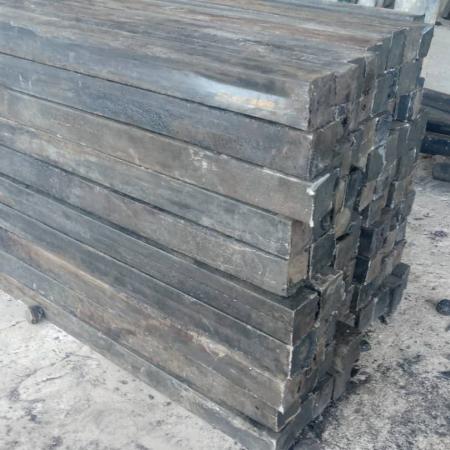
L'idée de créer EcoAct est née du désir d'assainir l'environnement. Au début, nous ramassions les déchets plastiques et les entassions jusqu'à ce que nous les vendions aux Chinois lorsqu'ils étaient en quantité suffisante. Comme il nous était difficile d'aller sur le terrain pour ramasser les déchets, nous avons décidé de mettre en place des centres de collecte des plastiques et nous avons commencé à acheter aux ramasseurs de déchets jusqu'à une tonne toutes les deux semaines. Mais il est difficile de collecter une tonne de bouteilles en plastique, car elles occupent beaucoup d'espace dans la zone de stockage. Il était donc facile de collecter des seaux et des bocaux et de les envoyer aux Chinois. Cependant, la difficulté est venue du fait que les Chinois fixaient un prix et qu'ils achetaient également aux ramasseurs de déchets. Cette situation a posé des problèmes en termes de tarification. Puisque l'idée était de traiter des questions environnementales, nous avons continué, mais parfois nos collections ont été volées parce que le contrôle était difficile. En effet, certains ramasseurs de déchets nous vendaient les mêmes déchets que ceux volés dans nos centres. Pour mieux contrôler, nous avons donc dû fabriquer nous-mêmes des objets. Nous avions vu des panneaux en plastique à Kenya EcoPost en 2008/9, ils fabriquaient des poteaux. L'investissement est devenu difficile parce qu'il fallait de l'argent. Plus tard, nous avons réussi à solliciter des fonds auprès de différentes sources et nous avons acheté une petite machine à broyer le plastique et nous avons commencé à vendre des flocons de plastique aux Chinois. Ainsi, au lieu de vendre des plastiques à bas prix, nous avons commencé à vendre des flocons de plastique à valeur ajoutée. En 2018, le prix du PEHD était de 1200 TZS/kg dans l'usine chinoise, mais de 800 TZS/kg dans les rues. À l'époque, le prix était élevé parce qu'ils étaient utilisés pour fabriquer des sacs en plastique qui ont été interdits par le gouvernement en 2019. Les HDPP, qui sont des fûts durs utilisés pour fabriquer des sacs, étaient vendus à 900-1000 TZS/kg et le prix dans la rue était de 600-650 TZS/kg. Ces sacs n'avaient pas de marché comme les sacs en plastique parce qu'ils étaient grands par rapport aux sacs en plastique à usage unique. En juin 2019, le gouvernement a interdit les sacs en plastique à usage unique, de sorte que personne n'a acheté de plastique. À la suite de l'interdiction du plastique, nous avons dû prendre la décision de fermer l'entreprise ou de poursuivre notre idée de fabriquer des poteaux, mais le défi était que les machines étaient chères. Lorsque nous étions dans le secteur du broyage, nous avons économisé de l'argent pour acheter une extrudeuse. Nous avons acheté une extrudeuse, mais les opérations étaient difficiles en raison d'un manque d'expertise. Nous produisions parfois des poteaux courbés ou fissurés. Depuis, nous avons appris et nous avons adopté la technologie du travail du bois du Kenya.

